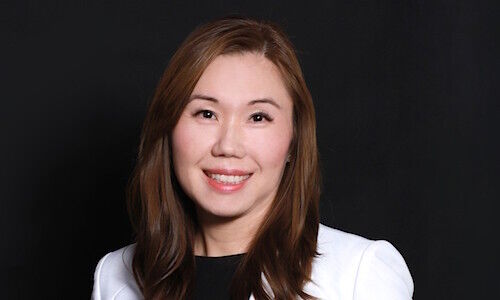Jesper Koll: «There's a Strategy to Make Trump Look Like a Winner»
The biggest threat to Japan's national prosperity comes from the Trump Administration, writes Jesper Koll in his essay for finews.first.
finews.first is a forum for renowned authors specialized on economic and financial topics. The texts are published in both German and English. The publishers of finews.com are responsible for the selection.
The news that Prime Minister Shinzo Abe will likely continue to be Japan's Prime Minister for another three years, bodes well for Japan's economy in general, and Japanese risk assets in particular. From here, I believe two specific forces should combine to allow a Nikkei rally towards the 30,000 level over the next six months:
- Pro-growth policy surprises
- A sharp upturn in positive earnings revisions momentum
While the re-election of Prime Minister Abe was widely anticipated, expectations for new pro-active policy initiatives are extremely low. Against this, I believe positive surprises are poised to be delivered relatively soon. Specifically, I look for:
«The need for a supplementary budget stems from the various natural disasters that hit Japan»
A new supplementary budget. The need for this stems from the various natural disasters that hit Japan over the past six months. About half of the funds should be go to direct regional reconstruction, but the other half is poised to be earmarked for nationwide disaster prevention measures.
A cabinet re-shuffle, breakup of government bureaucracies, and streamlining of advisory councils Although most key cabinet positions are unlikely to be changed, domestic portfolios like agriculture, labour/welfare, and economic & fiscal policy, may be ready for new leadership.
«He was the key architect of the deregulation and growth strategy in Abe's first cabinet »
A key positive surprise would be the re-appointment of Akira Amari. He is a trusted Abe ‹inner circle› member who was the key architect of the deregulation and growth strategy in Abe's first «Aebenomics» cabinet (from December 2012 to January 2016).
The biggest threat to Japan's national prosperity comes from the Trump Administration and the threat of a 25 percent tariff on Japanese car/car parts exports. This could cut Gross Domestic Product (GDP) by as much as half a percent, and force Topix profit to drop by as much as 15 percent.
«Team Abe has been working overtime»
However, the risks of actual implementation of the tariffs is low and I expect very positive, pro-active and pro-growth policy initiatives to become a hallmark for Prime Minister Abe’s rule over the next six to nine months.
«Team Abe» has been working overtime and a three-pronged strategy to make President Trump look like a winner appears to be in place: first, raise Japanese imports of agriculture products; second, raise Japan's defence spending; and third, a possible «America One Belt, One Road» Japan-funded, U.S. targeted infrastructure investment fund.
Jesper Koll is one of Japan’s most influential economic advisors and commentators. He was appointed WisdomTree's Head of Japan on July 1, 2015. Over the past two decades he has been consistently ranked as one of the top Japan strategists/economists, working for major U.S. investment banks J.P. Morgan and Merrill Lynch. He has written two books in Japanese. After arriving in Japan in 1986 he initially worked as an aide to a Member of Parliament. He has a Masters degree from the School of Advanced and International Studies at Johns Hopkins University and was a research fellow at both Tokyo University and Kyoto University.
Previous contributions: Rudi Bogni, Peter Kurer, Oliver Berger, Rolf Banz, Dieter Ruloff, Werner Vogt, Walter Wittmann, Alfred Mettler, Peter Hody, Robert Holzach, Craig Murray, David Zollinger, Arthur Bolliger, Beat Kappeler, Chris Rowe, Stefan Gerlach, Marc Lussy, Nuno Fernandes, Richard Egger, Maurice Pedergnana, Marco Bargel, Steve Hanke, Andreas Britt, Urs Schoettli, Ursula Finsterwald, Stefan Kreuzkamp, Oliver Bussmann, Michael Benz, Peter Hody, Albert Steck, Andreas Britt, Martin Dahinden, Thomas Fedier, Alfred Mettler, Brigitte Strebel, Peter Hody, Mirjam Staub-Bisang, Nicolas Roth, Thorsten Polleit, Kim Iskyan, Stephen Dover, Denise Kenyon-Rouvinez, Christian Dreyer, Kinan Khadam-Al-Jame, Robert Hemmi, Anton Affentranger, Yves Mirabaud, Katharina Bart, Frédéric Papp, Hans-Martin Kraus, Gerard Guerdat, Didier Saint-Georges, Mario Bassi, Stephen Thariyan, Dan Steinbock, Rino Borini, Bert Flossbach, Michael Hasenstab, Guido Schilling, Werner E. Rutsch, Dorte Bech Vizard, Adriano B. Lucatelli, Katharina Bart, Maya Bhandari, Jean Tirole, Hans Jakob Roth, Marco Martinelli, Beat Wittmann, Thomas Sutter, Tom King, Werner Peyer, Thomas Kupfer, Peter Kurer, Arturo Bris, Frederic Papp, Claudia Kraaz, James Syme, Peter Hody, Dennis Larsen, Bernd Kramer, Ralph Ebert, Marionna Wegenstein, Armin Jans, Nicolas Roth, Hans Ulrich Jost, Patrick Hunger, Fabrizio Quirighetti, Claire Shaw, Peter Fanconi, Alex Wolf, Dan Steinbock, Patrick Scheurle, Claude Baumann, Sandro Occhilupo, Claudia Kraaz, Will Ballard, Michael Bornhäusser, Nicholas Yeo, Claude-Alain Margelisch, Jean-François Hirschel, Jens Pongratz. and Samuel Gerber, Philipp Weckherlin, Michel Longhini, Anne Richards, Michael Welti, Antoni Trenchev, Benoit Barbereau, Pascal R. Bersier, Shaul Lifshitz, Klaus Breiner, Ana Botín, Michel Longhini and Martin Gilbert.



























